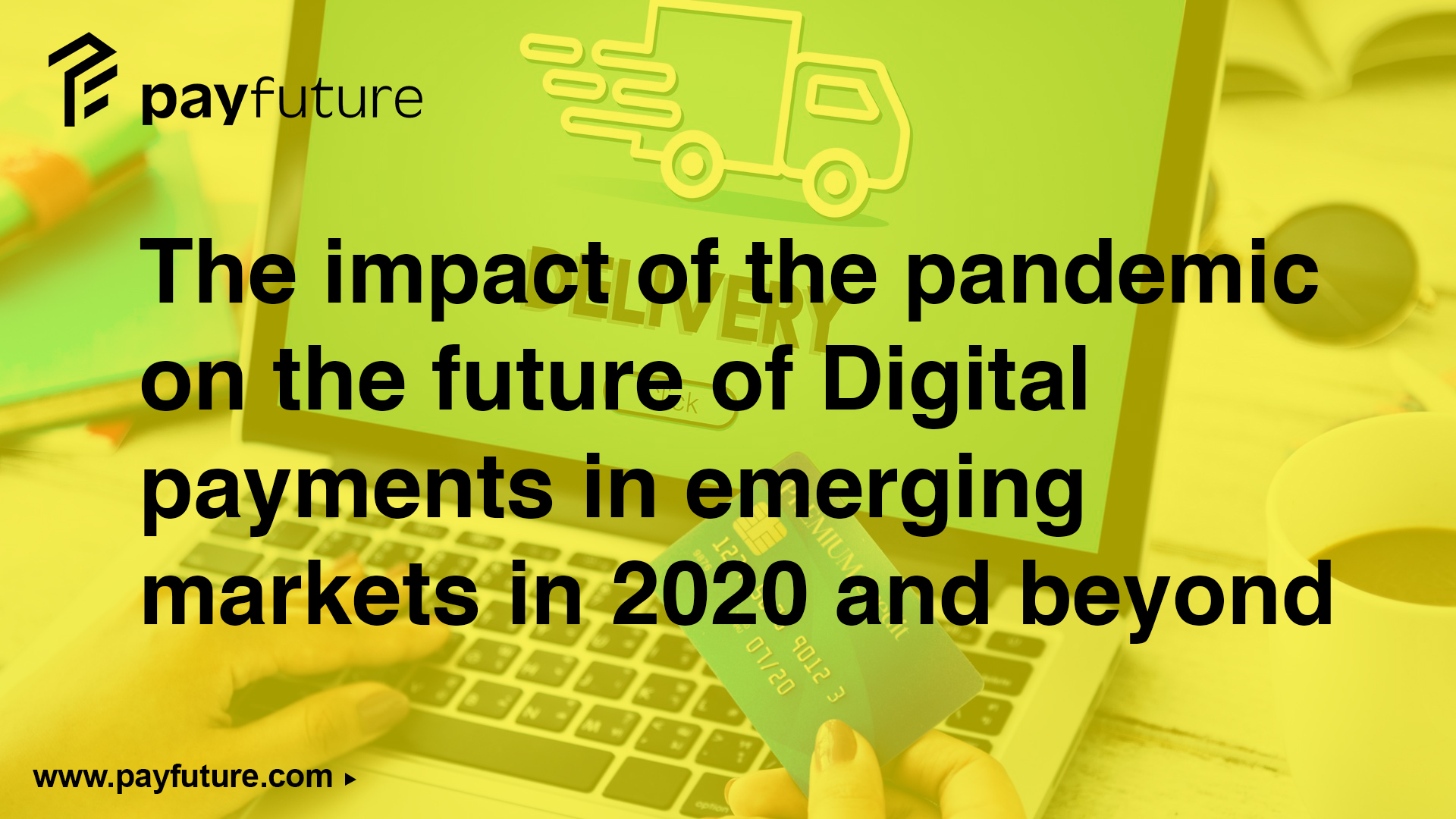The impact of the pandemic on the future of Digital payments in emerging markets in 2020 and beyond
The COVID-19 crisis is having a significant and widespread effect on global payments across sectors.
As people have remained home and often isolated during the pandemic in 2020, many people have resorted to purchasing what they need online. This includes buying groceries online, buying toiletries online and paying your bills online for example.
The pandemic has significantly accelerated the shift towards digital payments. The International Monetary Fund did some research into the impact of the pandemic and they pointed out that,“digital financial services allow for social distancing,” and we know social distancing is important during the pandemic to reduce the spread of the virus. Also, during the pandemic, in April 2020 the World Health Organisation recommended the use of contactless payments (instead of going out and using cash) to slow the spread of the virus.
Research shows that even before the covid19 pandemic, the use of contactless payments was already increasing in parts of the world, however, this is increasing more rapidly now because of the impact of covid19 on our lives and the need to adapt. Mastercard highlighted that three-quarters of its transactions in Europe are now contactless.
Mobile payments have also increased. In the US, 56 percent of retailers are now accepting e-wallet payments, compared with 44 percent before the pandemic.
There has also been a reduced use of cash across the globe including in the emerging markets. As shown below, Mckinsey has highlighted how covid19 will see a decline in cash usage.
Furthermore, Covid19 underlines the importance of fintech in emerging markets. According to the World Economic Forum on this topic;
- Financial inclusion in developing markets has become even more important during the pandemic
- Mobile solutions are proving to be a lifeline in emerging economies
- Fintech firms can use this opportunity to build their reputations and emerge stronger once the crisis has passed
- Technology is critical. The technology also needs to be secure and compliant
To summarise, the pandemic has accelerated the move from physical to virtual banking.Furthermore, in several countries including in Mexico, some Fintech initiatives were launched to alleviate liquidity problems of entrepreneurs during the covid pandemic. There are reports from China that suggest that blockchain technology and other industry / technology advances like Big Data, 5G and AI (Artificial intelligence) have helped speed up business recovery and have played a part in efforts to control the spread of the virus and to develop a COVID-19 vaccine. Payments and Fintech innovation is being seen, to support not only individuals, but also businesses.
The future potential – more specifically in the emerging markets
The pandemic has highlighted the risks and restrictions inherent in analogue payments systems and the value and benefits of moving over to other digital options for banking and making payments. The pandemic meant that more small businesses are becoming digital and changing how their business sends and receives payments – this according to survey research has also led to higher levels of customer satisfaction
Although the emerging markets have some challenges there is huge potential for the payments sector in emerging markets. To summarise;
- The shift to electronic transactions has placed front and center the need for merchant acquiring businesses to update and differentiate their service offerings
- Regulators are going to play an active role in this growth
- There will be new channels available and a new products space in this sector
- Disruptive technologies and developments will see huge growth potential
- The impact of covid19 on technology advances and the desire for cashless payments will enhance this sector.
- Fintech initiatives are being developed to support SME finance in the context of the covid19 crisis – fintech is being seen as a recovery and economic survival and growth tool.
To conclude, there is evidence that digital payments is an accelerating trend and the momentum towards a cashless society has increased. There will be more demand for fintech solutions.
